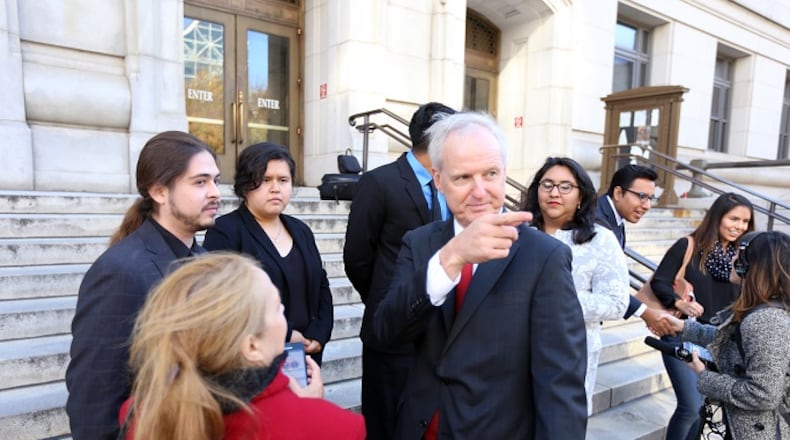Georgia residents who have received a special reprieve from deportation from the Obama administration may begin paying in-state tuition here under a state court ruling released Tuesday.
At issue is the Obama administration’s Deferred Action for Childhood Arrivals program, or DACA, which grants work permits and temporary deportation deferrals to immigrants who were brought to the U.S. as children without authorization. Ten DACA recipients living in Georgia sued the Board of Regents in the Fulton County Superior Court for the ability to pay in-state tuition, which is about three times less expensive than Georgia’s out-of-state rates.
A 2008 state law says noncitizens cannot pay the in-state rates unless they are “legally in this state.” And a Board of Regents tuition policy closely tracks that law. Assisted by local immigration attorney Charles Kuck, the plaintiffs in the lawsuit pointed to federal records that say DACA recipients are lawfully present in the U.S.
Fulton Superior Court Chief Judge Gail Tusan agreed with that argument in the ruling she issued Friday. University System of Georgia officials, she wrote, are “hereby compelled to perform their duty in applying the federal definition of lawful presence as it relates to students who are DACA recipients and to grant them in-state tuition status.”
“Defendants have refused to accept the federally established lawful presence of plaintiffs and many other similarly situated students — students who are Georgia taxpayers, workers, and graduates of
Georgia public high schools pursuing an affordable option for higher education,” Tusan wrote in her decision, which was issued Friday. “Such refusal of a faithful performance of their duties is unreasonable and creates a defect of legal justice that has already negatively impacted thousands of Georgia students.”
Plaintiff Josafat Santillan was granted deferred action after coming here from Mexico and overstaying his tourist visa. Hoping to one day start a career in the real estate assessment industry, the Stone Mountain resident is studying geography part-time at Kennesaw State University. He is now working full-time at a steel processing plant to help pay for his education. Santillan said he could go to school full-time and finish his degree faster now that he may pay the lower in-state tuition rates.
“We knew if we could get the case through all the obstacles that the court would find in our favor,” he said of the court’s ruling. “It’s been a long time coming.”
The state Attorney General’s office, which sought to have the case dismissed, did not immediately respond to a request for comment Tuesday about whether it would appeal. The Board of Regents also had no immediate comment.
About the Author
Keep Reading
The Latest
Featured




